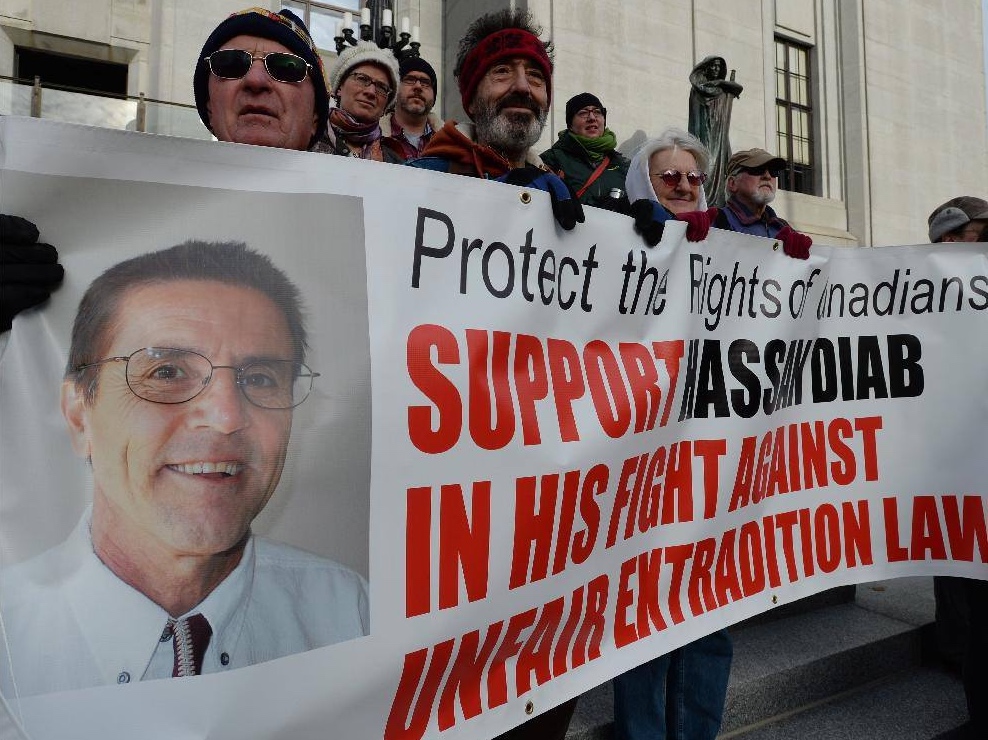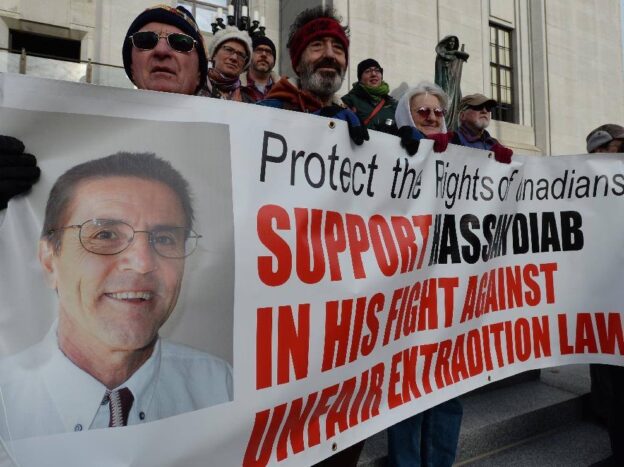
Credit: Hassan Diab Support Committee
In early December 2024, the ICLMG coalition wrote to Carleton University interim president Dr. Jerry Tomberlin, in response to a smear campaign calling on Dr. Hassan Diab to be fired from the university. In our letter, we asked the university to issue a statement in support of Dr. Diab’s innocence, take measures to protect him and his family from harassment, and ensure his continued employment at Carleton University.
The university failed to reply. In the meantime, the National Post ran an article, in early January 2025, about the fact that Dr. Diab would not be teaching at Carleton University for the Winter 2025 semester. The article repeated the allegations of the smear campaign against Dr. Diab, with proponents claiming victory that Dr. Diab would not be teaching. In the article, the university failed once again to defend Dr. Diab, and in an ambiguous response, stated only that he was “not in the employment of Carleton.”
This is despite the university knowing full well, as has been shared by Dr. Diab himself, that he was not scheduled to teach at the university in the Winter Semester in a decision made long before the smear campaign began.
In response to the university’s clear failure to share all relevant facts, or to defend a member of its faculty against harassment and attacks, we sent a follow-up letter on January 22nd, 2025, to Carleton University President Dr. Wisdom Tettey. In it, we once again provided clear information on the miscarriage of justice faced by Dr. Diab, and called on the University to, “take action to correct the record regarding both Dr. Diab’s innocence, the conditions under which he parted ways with Carleton University, and that he will be given fair consideration for re-employment at Carleton University, should the case arise.”
The university’s response to our follow-up, from Deputy Provost Dr. Catherine Khordoc, failed once again to address our concerns, simply repeating that Dr. Diab is not in the employment of Carleton University, and that they could not discuss the issue further due to privacy concerns. This deflection ignores that our request was not to discuss private information related to Dr. Diab, but for the university to set the record straight and commit to doing better in the future.
In our response, we write:
“It is incredibly disappointing that a public institution like Carleton University has not taken a more clear and proactive stance in defending a faculty member who has lived through a horrendous ordeal for nearly 20 years now. Through our coalition’s work on the impacts of false and misleading accusations of participation in acts of terrorism, we have seen how these kinds of baseless allegations can completely undermine an individual’s livelihood, as well as their most basic rights. As noted in our letter, there is ample evidence demonstrating not only that the case against Dr. Diab was fundamentally flawed and would not have succeeded except for France’s exceptional laws regarding counterterrorism cases, but there is also clear evidence that he was not in France at the moment of the attack. Hassan Diab is clearly innocent, so Carleton University should act accordingly – especially given how he was treated by Carleton University administration when he was first arrested in 2008.”
We remain open to further discussions with Carleton University administration, and committed to ensuring that the nearly 20-year ordeal faced by Dr. Diab comes to an end.
Please take action and share widely:
1. Send a letter to the Prime Minister, Minister of Justice, your MP and other officials demanding they act to help achieve justice for Hassan Diab: iclmg.ca/diab‑letter
2. Tell Carleton University: Stand up for Dr. Hassan Diab and Protect him from Harassment and Threats: https://actionnetwork.org/letters/carleton-university-do-not-fire-hassan-diab
Thank you!
Since you’re here…… we have a small favour to ask. Here at ICLMG, we are working very hard to protect and promote human rights and civil liberties in the context of the so-called “war on terror” in Canada. We do not receive any financial support from any federal, provincial or municipal governments or political parties. You can become our patron on Patreon and get rewards in exchange for your support. You can give as little as $1/month (that’s only $12/year!) and you can unsubscribe at any time. Any donations will go a long way to support our work. |







